Here’s an excerpt from David Holmgren’s A History from the Future – a prelude to his upcoming book RetroSuburbia.
A History from the Future: a prosperous way down
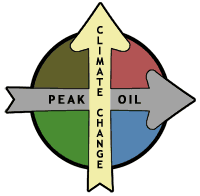 Long time central Victorian resident and co-originator of the globally influential permaculture concept, David Holmgren draws on his Future Scenarios work to paint a picture of how simple household and community level strategies can build resilience to the hard emerging realities of economic contraction, peak oil and climate change.
Long time central Victorian resident and co-originator of the globally influential permaculture concept, David Holmgren draws on his Future Scenarios work to paint a picture of how simple household and community level strategies can build resilience to the hard emerging realities of economic contraction, peak oil and climate change.
Holmgren has spent decades modelling how low impact resilient ways of living and land use provide a happier and healthier alternative to dependent consumerism. In this story, based on an original presentation from the Local Lives Global Matters conference in Castlemaine 2015, he shows how these informed lifestyle choices and biological solutions become the basis for surfing the downslope of the emerging energy descent future.
A local Story from 2086
Prelude: The World at Energy Peak 2000-2015
At the turn of the 21st century the evidence for energy descent driven by peak oil and climate change was already strong. The quasi religious belief in continuous economic growth had a strong hold on collective psychology in central Victoria as much as anywhere in the world. The global financial system began to unravel in 2008 at the same time that global production of conventional oil peaked. For a minority it was increasingly obvious that the policies put in place ensured that the collapse was even more severe when it did come. It was like the powers that be had pushed the accelerator hard to the floor in one of those supercharged sports cars of the time, to attempt to jump across the widening chasm that humanity was facing.
The collapse of global financial growth unfolded differently in different places but here the story had many upsides that were partly due to luck and partly a result of visionaries and innovators who helped create a better future. These are the bare bones of how we got from what a few people still consider was the golden age to what we call the Earth Steward culture.
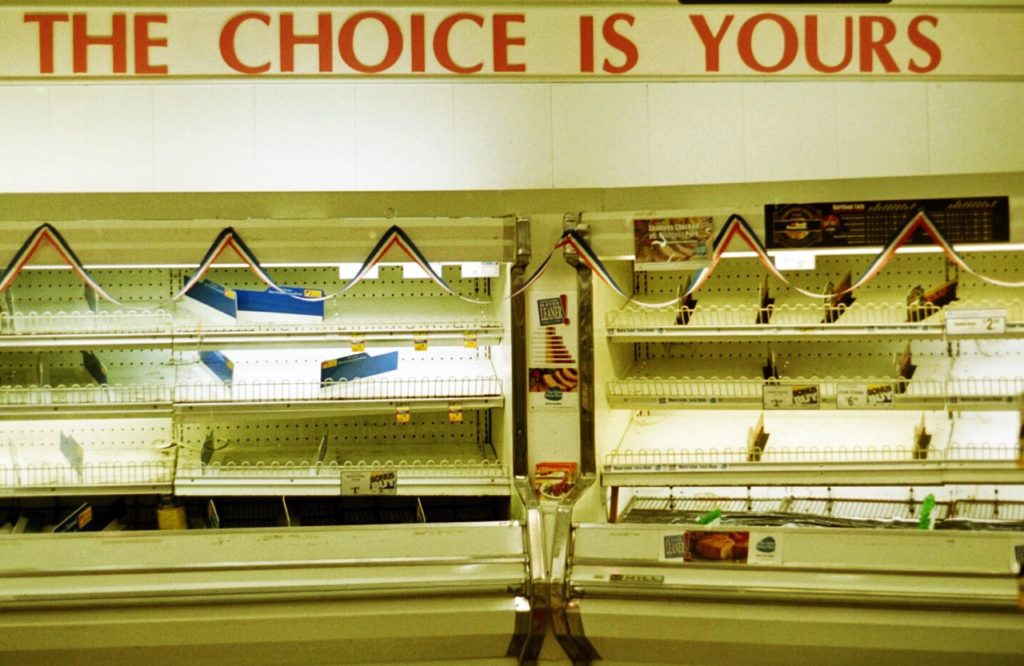
First Energy Descent Crisis 2017-2026
In 2017 the Australian property bubble burst. For our communities, this marked the start of the First Energy Descent Crisis (of the 21st century). Ballarat Bank was the first financial institution to fail and a government forced take over by the Commonwealth Bank saw the Community Bank network hived off as local lending co-ops backed by local government hoping to restart economic activity in regional towns that were increasingly on their own as State and Federal governments focused on dealing with hardship and social unrest in the cities.
The crisis was world wide, so dramatically reduced global Greenhouse Gas Emissions and the peak of global oil (what they called Total Liquids at the time) the same year was very much in line with the 1972 Limits To Growth report default scenario showing industrial output peaking about that time. More recent studies suggest that net energy available to support humanity peaked closer to the turn of the millennium but it’s all a moot point because it seems that economic growth had been a net drain on human welfare for decades before that.
As capital investment in oil fell off a cliff, and production from existing fields declined at nearly 10% there was a second oil price shock, a US currency collapse and a short war between the USA and China in 2022. Australia got punished in the trade embargo imposed by China. The economic crisis in China had already caused nearly 100 million of the recently urbanised workers to return to the villages, and reimposition of a command economy to continue the shift to renewable energy and revitalise agriculture. Consequently China was able to cope without Australian coal and gas and there was so much scrap steel in the world that the iron ore exports had come to a standstill.
While oil and food remained costly (at least relative to falling wages) most manufactured goods were dirt-cheap. Solar panels from China (somehow getting around the trade embargo) accelerated the trend for retail customers going off grid which, combined with collapse of commercial demand for electricity, led to a “Death Spiral” in the power grid with rising prices and increasing blackouts (and surges due to excess wind and solar inputs).
A newly elected Federal Labor government renationalised the power grid, along with price controls, rationing an Australia ID card allowing rationed access to subsidised supermarkets that had been experiencing shortages of fresh fruit, vegetables and dairy.
In Victoria, a Liberal government implemented policies to encourage people to be more self-reliant. Permaculture education was adopted as a framework for integrating aspects of self-reliance including home food production, owner building, water harvesting and waste management.
Rationing of fuel led to hitch-hiking, ride sharing and in rural areas a rush to convert vehicles to wood gas. Bicycles became the default personal transport around town in Castlemanine but in Daylesford and Hepburn, electric bikes and vehicles powered by the Hepburn Wind charging stations installed for tourists before the property bubble burst maintained mobility for locals.

Conversion of vehicles to wood gas by a range of bush mechanics and ex-hot rodders had mixed success. The market value of higher powered larger vehicles and trucks rose as a result of the first wave of conversions. The Castlemaine Obtainium Engineering Institute was established to test and improve local designs and prototypes. One of the motivations was a competitive spirit with the electric car networks centred in Daylesford and Ballarat.
Use of Bitcoin (a virtual currency), local currencies, precious metals and barter all increased to support exchange in the rapidly growing informal and grey economies. Bitcoin then failed in mysterious circumstances after being targeted for funding terrorism.
The Internet began functioning again after major breakdowns during the conflict between the US and China. But Facebook and Amazon were bankrupt, cyberspace was littered with defunct and unmaintained sites and Internet marketing was plagued by cyber crime and draconian government regulations. Local computer networks using wireless technology, as well as a revival of two-way radio, started building back to basics communication pathways.

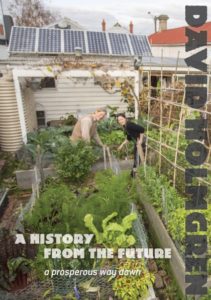
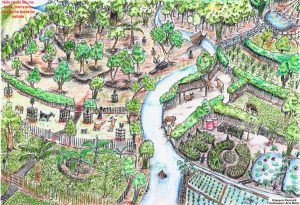
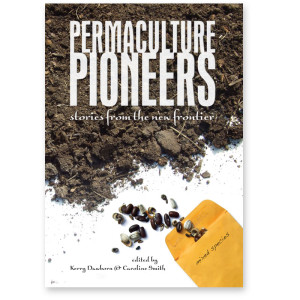
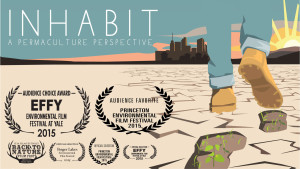

So far so good with the extract. I assume it goes on as an exploration of the fate of Hepburn, a small town in central Victoria, rather than where most of us live in the big cities.
Reading the extract I was reminded of similar exploration into alternative histories by science fiction writers — those are the genres where the extract fits — by Kim Stanley Robinson and Cory Doctorow and of early writing such as Callenbach’s Ecotopia. These, less so Callenbach as it is so dated, are worth reading for anyone interested in alternative histories as it is that genre of literature that asks ‘what if?’ and explores possible futures.
Robinson said in a video interview that we already see signs of a post-capitalist society in the present day:
• the gift economy
• open source culture (people who have a sufficiency, some capital, some free time, and who give something to the community)
• Scandinavian social democracy
• the employee-run Mondragon nested co-ops that include a bank.
Speculating, he says that:
• a new system would have some residual capitalism in it
• a new economy would treat human needs as a public utility for all — water, health care, eduction, food, shelter clothing — not commodities but a communal enterprise
• the rest would be a capital investment market, which would grow fast.
I don’t know if David intends to treat these topics in his forthcoming book. If he does it might be a complement to the work already done in the area by Robinson and Doctorow.